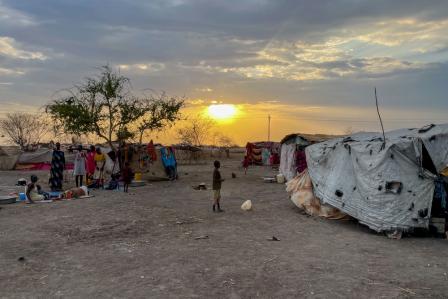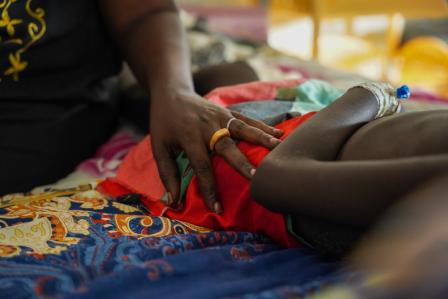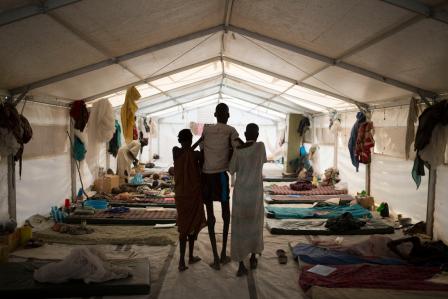“It feels like no one cares about Sudan.”
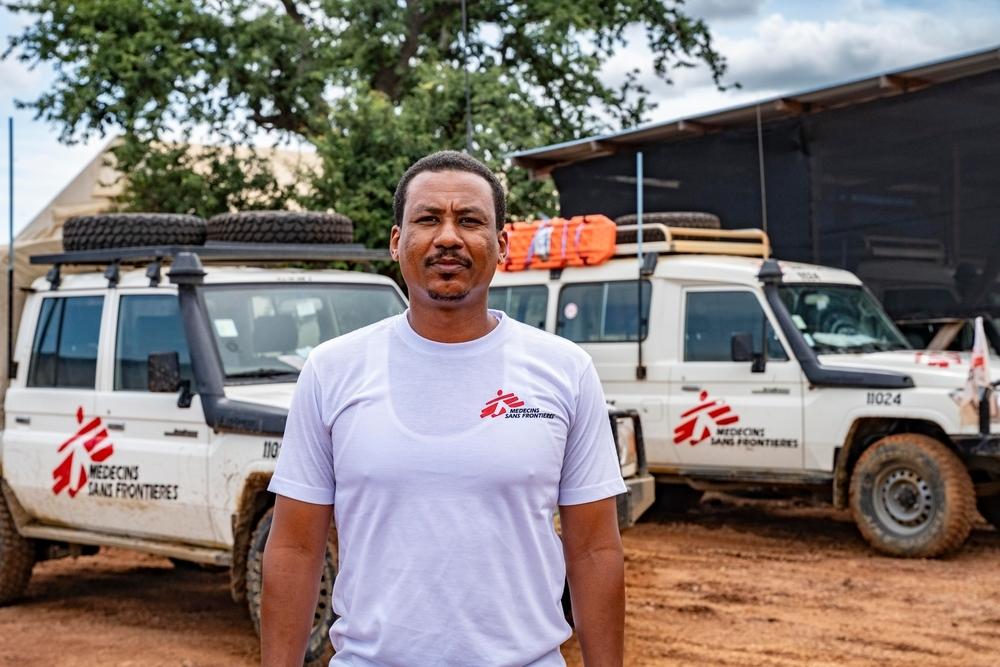
South Sudan, October 2024. © Paula Casado Aguirregabiria/MSF
Dr. Bashir has worked in several Doctors Without Borders / Médecins Sans Frontières projects in Sudan, including supervising medical activities at the Doctors Without Borders-supported Umdawanban and Alban Aljadeed hospitals in Khartoum state, Sudan. Currently, he is working with Doctors Without Borders in Warrap state, South Sudan, where our teams are providing comprehensive care in Twic county and Abyei town at several facilities, as well as supporting integrated community case management sites in displaced camps. He reflects on the devastating impact of the war in Sudan and emphasizes the need for ongoing attention to the conflict.
"Do you remember me? I am Dr. Mohamed Bashir, Doctors Without Borders' former Deputy Medical Coordinator in Sudan. I once wrote a reflection, The Healing Hands of Sudan, in which I shared my firsthand experience of the civil war—not only as a medical humanitarian but as a Sudanese person.
I'm still with Doctors Without Borders, but now on an assignment in South Sudan, across the border from home. Although I'm physically far away, the effects of the war are ever-present, pulling me back with every news update as I compare the devastation that I hear of with the global news headlines that seem to barely notice.
Sudan and its suffering people have slipped down the world's list of priorities—forgotten by the media, neglected by political will, and overlooked by the humanitarian donor institutions that should be putting this catastrophe front and centre. I ask myself: What can I do as an individual? My resolve is clear—I will continue to support those crushed by this brutal war.Dr. Mohamed Bashir
Here in Twic County in South Sudan, many of our patients are South Sudanese returnees who have been displaced twice in about a decade. Thousands of Sudanese refugees have also crossed into different parts of South Sudan, scattered in host communities or crowded into refugee camps.
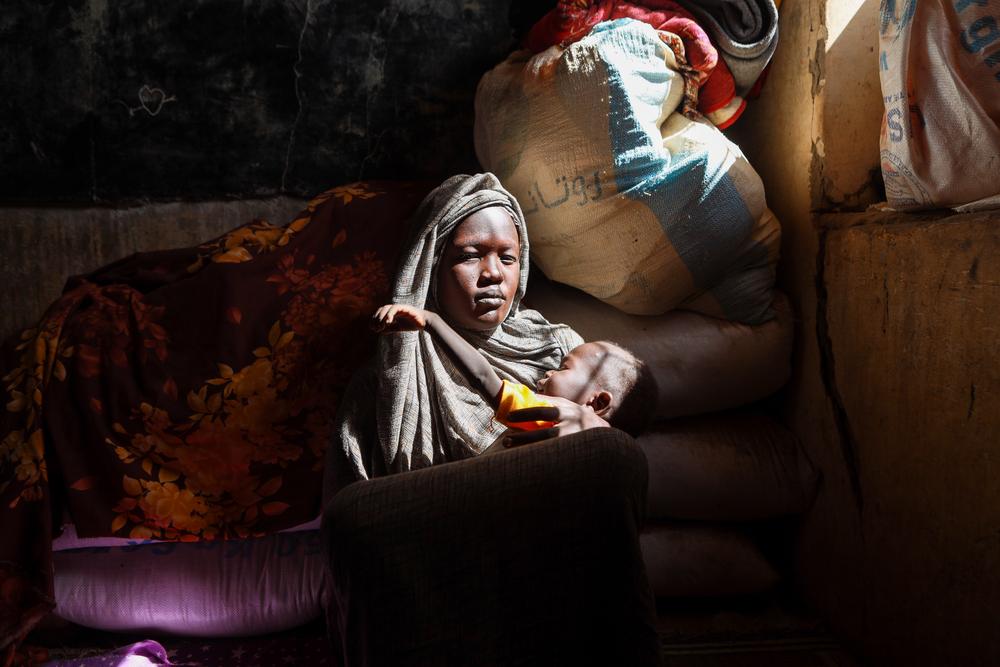
A displaced woman holds her child as she takes refuge in Alsafat Camp in Al Jazirah state. “I'm worried about the future of my children. I'm thinking about returning to Abyei so that I could provide an education for my children. But if the war comes to an end I'll return to Khartoum and my house as soon as possible, and my husband will be able to work,” she says. Sudan, December 2023. © Fais Abubakr
I know this pain
This war continues to torment us, tearing families apart. Those fleeing Sudan share the same stories of loss, uncertainty, and fading hope for peace. I know this pain too well.
Internal borders and front lines controlled by warring parties have sliced through a nation where lives are being lost, homes destroyed, and livelihoods wiped out.
As for the people—us—we are left alone.
My family escaped Khartoum, among the millions displaced, not once but several times in just 18 months. They left everything behind, with no clear path to survival and little attention from the world. We are still suffering from the disappearance of a relative of mine, a civilian taken from his home by a warring party over 10 months ago. We have no news—no information about his health or whether he will ever be released.
Even for those who escape the violence or reunite after separation, new challenges arise—floods, disease outbreaks—under a collapsed healthcare system. Most hospitals lie destroyed. Those that remain functional are marooned without medicine, staff, or resources. This is deliberate deprivation; a cruel tactic of war.
Surviving on the bare minimum, people have been left waiting for a miracle, yet more displacement, or even worse: death.
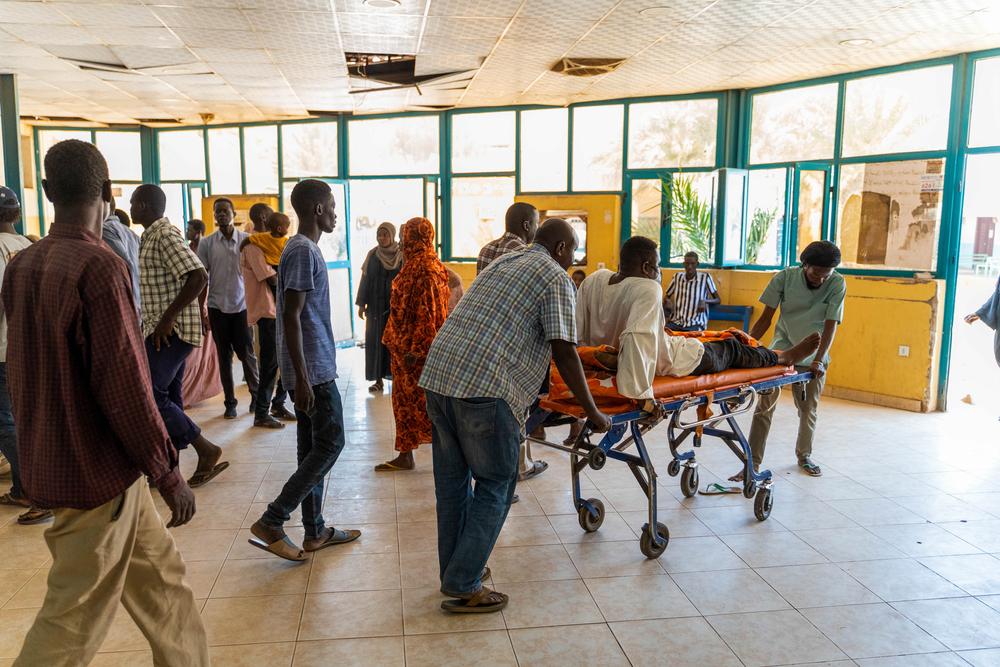
Patients are arriving at Bashair Hospital as it is the only accessible hospital in southern Khartoum. Sudan, May 2023. © MSF/Ala Kheir
Do not turn away
Despite all this, I’m here to share our resilience. As humanitarians—medics, logisticians, and nurses—we do everything we can to support those in need. Every small act matters, and every effort counts.
This is exactly what I’ve been doing for the past months in Twic as the Doctors Without Borders project medical referent at Mayen Abun County Hospital. The area was already overwhelmed by humanitarian needs, having witnessed previousely internal displacement of thousands of South Sudanese uprooted due to inter-communal violence in Agok in 2022. It’s a place where the health system has collapsed, burdened by malaria, hepatitis E, and malnutrition.
The work here provides a window into another dimension of my country’s war. I see firsthand the dire conditions faced by those who forced to flee Sudan. What astonishes me even more is how overlooked this crisis remains—there is so little mainstream knowledge about the displacement of Sudanese people to South Sudan, Chad, and other countries, despite the overwhelming needs of families seeking refuge.
We live in a time of escalating crises—both manmade and natural. The casualties of today's wars, in different places and contexts, are almost too tragic to comprehend."
Amid all this, I plead with the world: Do not let Sudan slip from your attention. At times, it feels as though no one cares, as if Sudan has been deliberately deprioritized by the global decision makers, pushed aside for other crises. How much longer can we tolerate this inaction?Dr. Mohamed Bashir
